Türkiye-Syria Earthquake: One Year On
6 February, 2024
The Adventist Development and Relief Agency (ADRA) is still executing rehabilitation efforts to assist vulnerable populations affected by the powerful earthquake that devastated southern Türkiye and northern Syria last year on 6 February 2023. The massive earthquake killed about 55,000 people, injured almost 130,000, destroyed 300,000 buildings, and displaced millions of families.
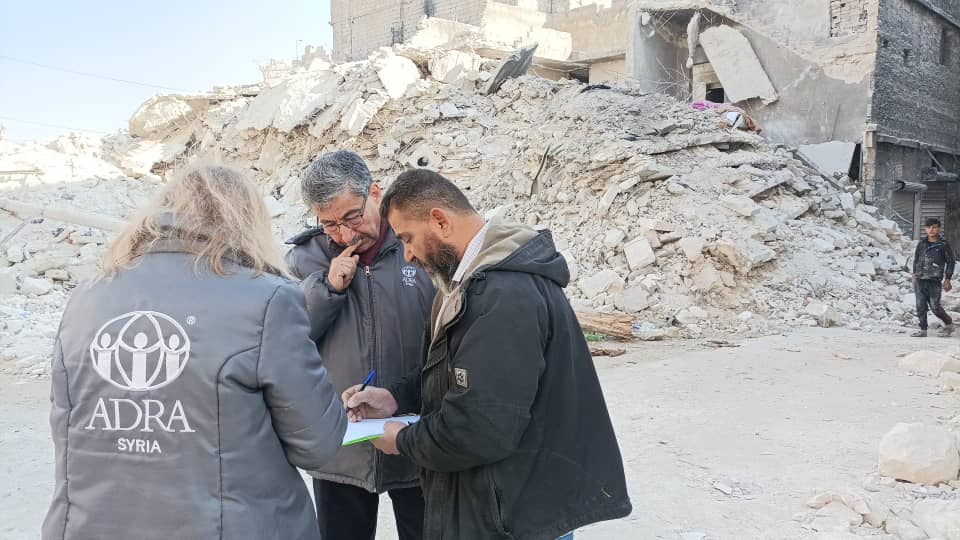
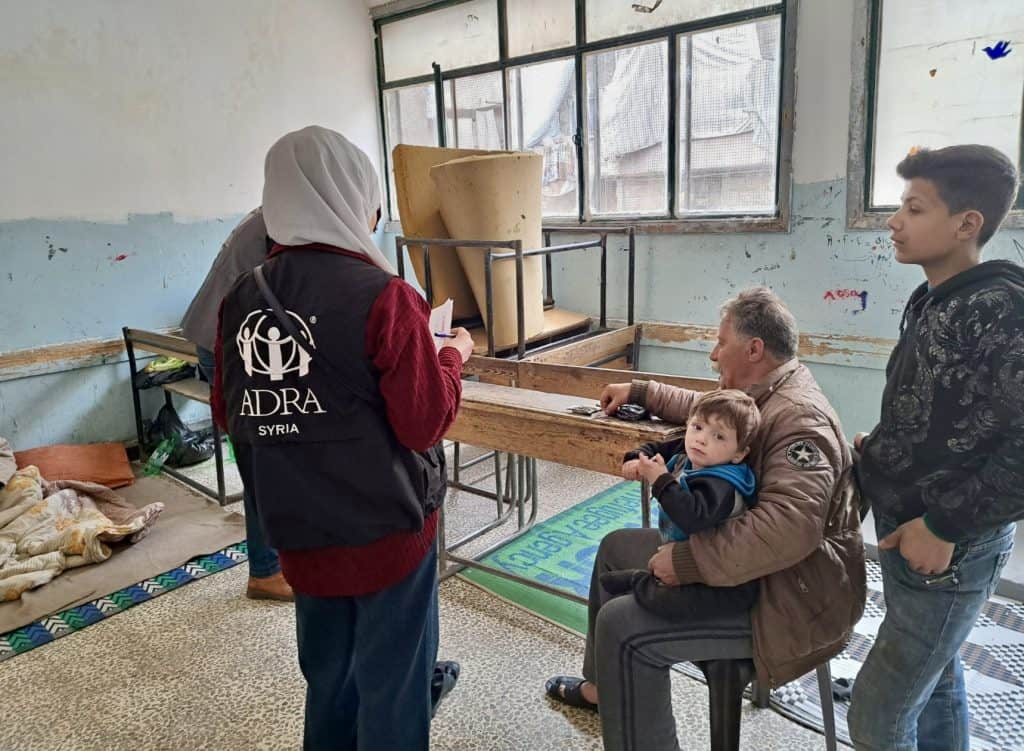
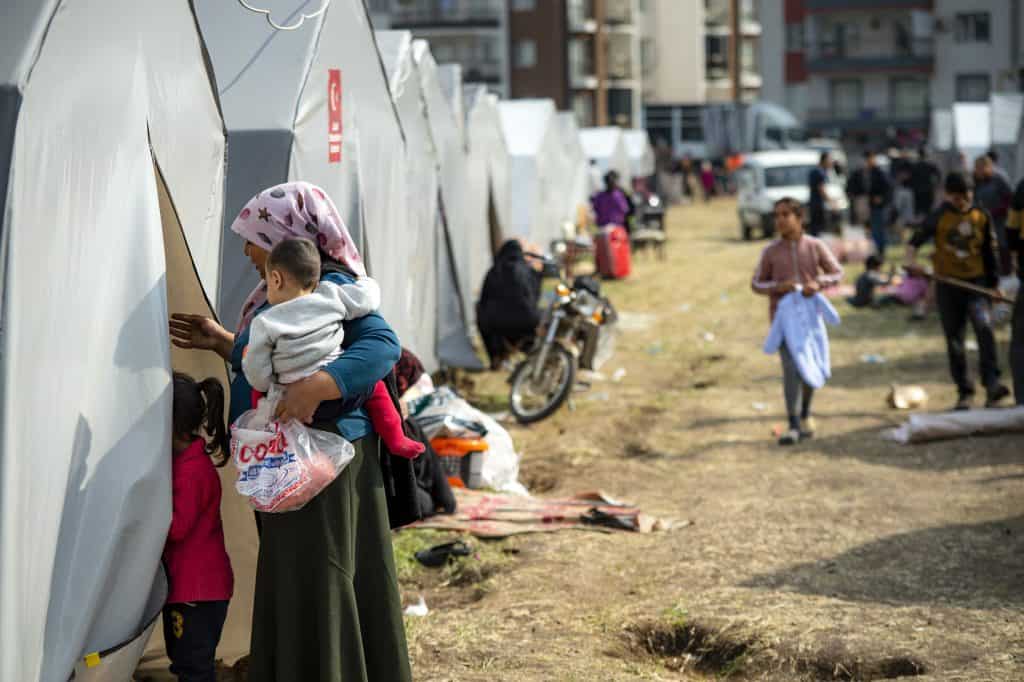
Within hours of the catastrophic earthquake, ADRA’s country office in Syria launched the first response activities with the help of Seventh-day Adventist Church volunteers, as well as trusted partners. In the early aftermath, emergency relief included shelter, blankets, meals, food parcels, and hygiene supplies to improve sanitation at temporary housing facilities, and the restoration of water facilities. At ground zero in Türkiye, the humanitarian organisation supplied critical tools and metal-cutting equipment for rescue operations and collaborated with the Adventist church and local agencies to deliver essential items including, warm clothing, water-proof tents, and gas stoves to aid the most affected neighbourhoods.
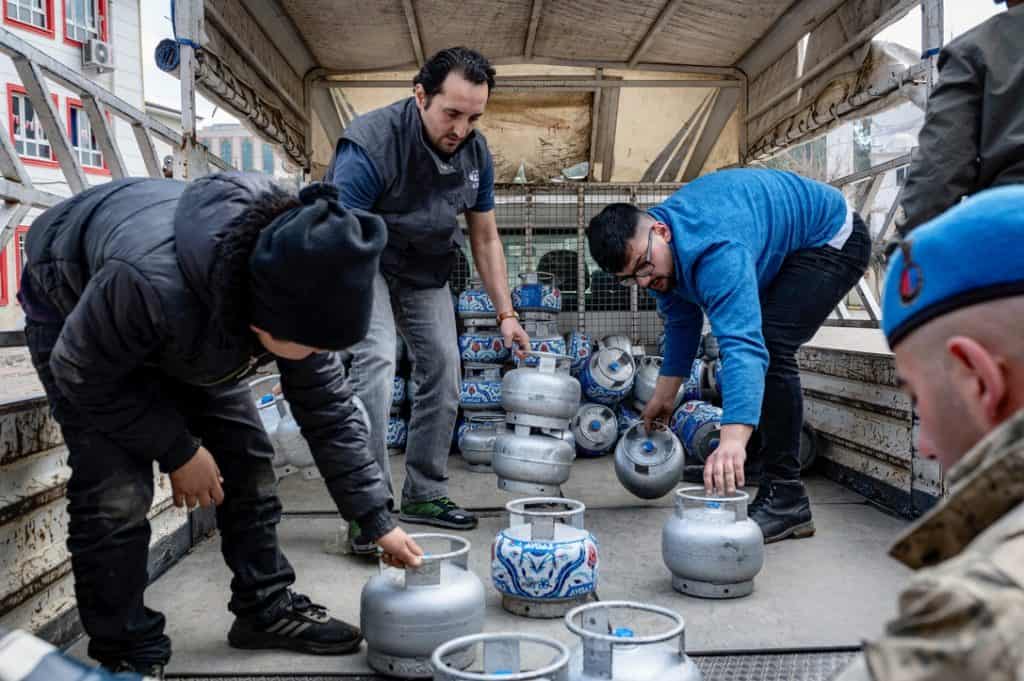
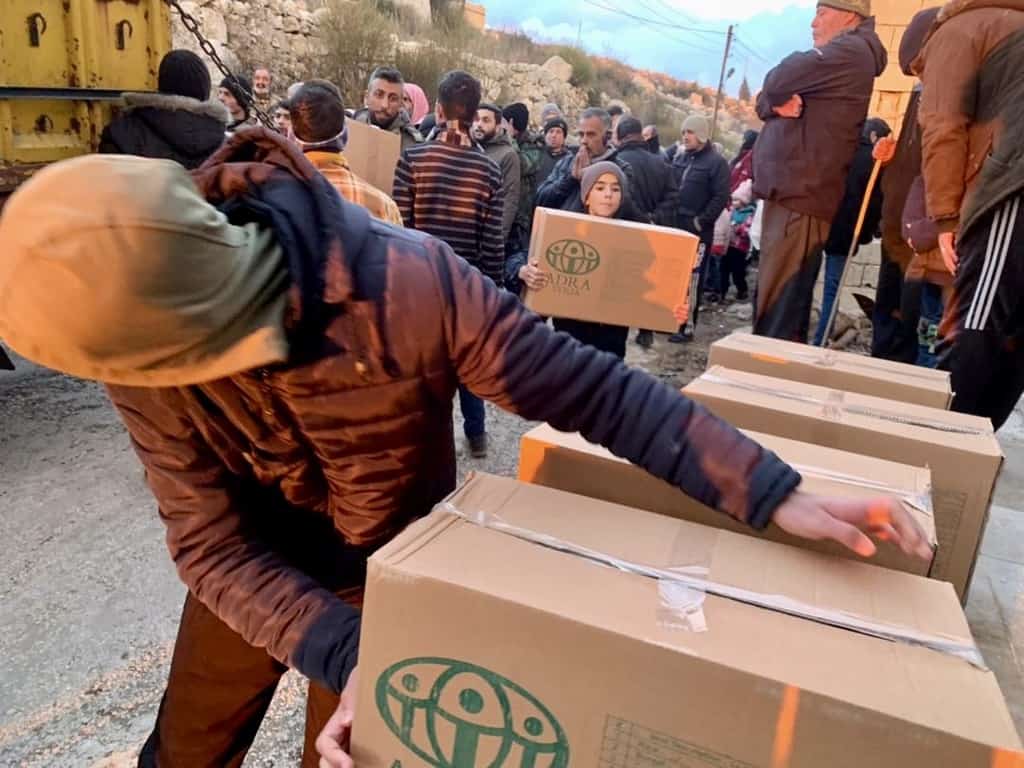
“ADRA staff were quick to respond, and they have remained active in impacted regions,” says Kelly Dowling, emergency response program manager for ADRA International. “Assistance has evolved from emergency aid to long-term rehabilitation, including the rehabilitation of school buildings and water systems. Please continue to keep all the impacted families, as well as the staff who continue to be pivotal to recovery efforts, in your prayers.”
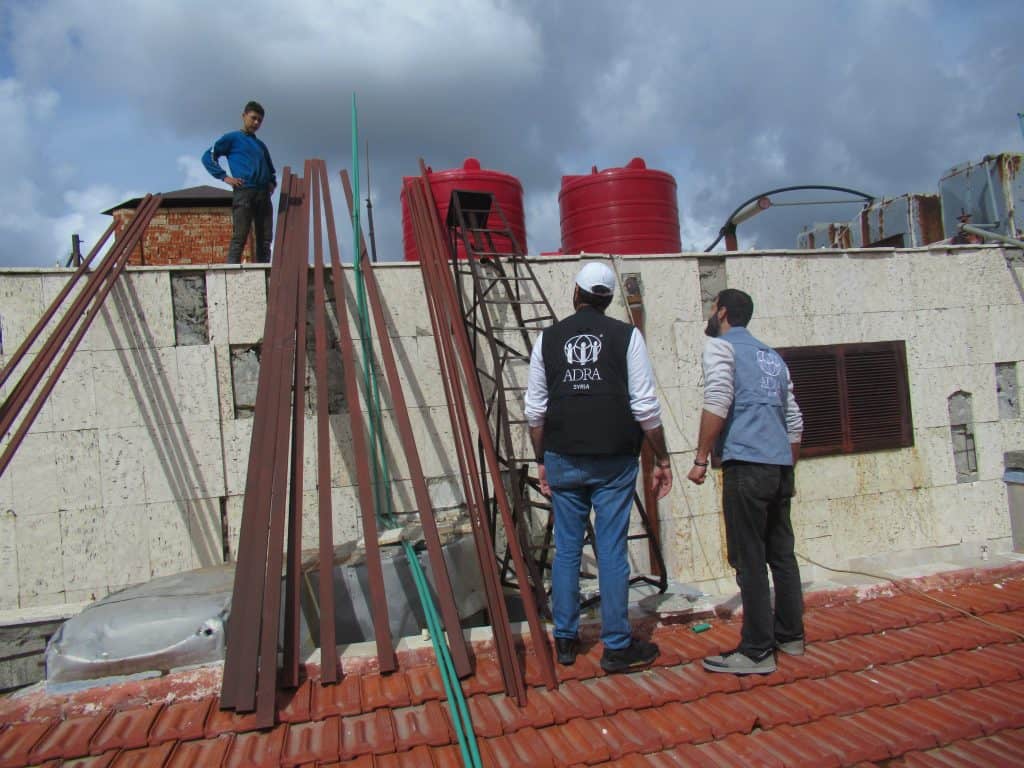
ADRA’s long-term rebuilding efforts focus mainly on children’s educational programs and the repair of school facilities.
“The education sector has been severely impacted, with a lot of kids out of school and many school buildings damaged,” says Nagi Khalil, country director for ADRA Syria. “ADRA is doing remedial classes and helping to repair schools that have been impaired.”
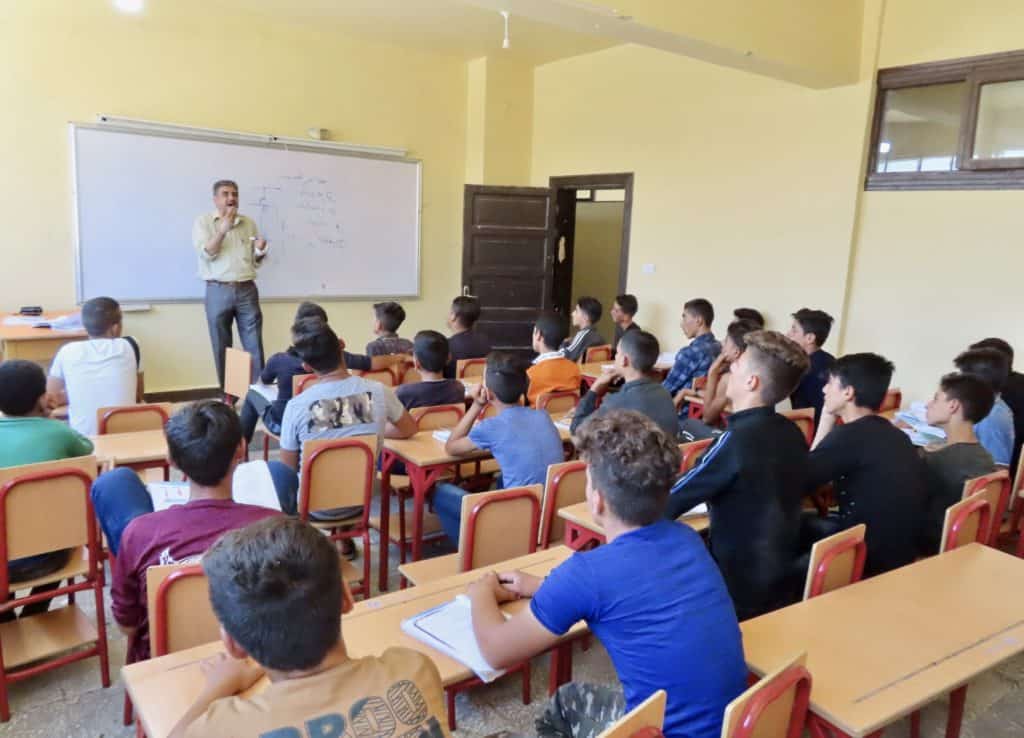
One prominent example is of a school in rural Latakia. In October 2023, ADRA completed reconstruction of the school, benefiting 1,125 students. Ilizabith*, 9, explains how the disaster affected students.
“I had to leave my school because (the building) had a crack,” Ilizabith said. “The Ministry had to figure out where we would all go. We couldn’t complete the formal curriculum like other students, causing a gap in our studies. Our teachers tried to teach through WhatsApp groups, but this was hard because the internet was bad. We took the final exam at a different school, but we hadn’t prepared enough due to all the disruptions. After ADRA finished, we returned to the school, and it was much better than before! Other students now want to come to our school and are coming to register!”
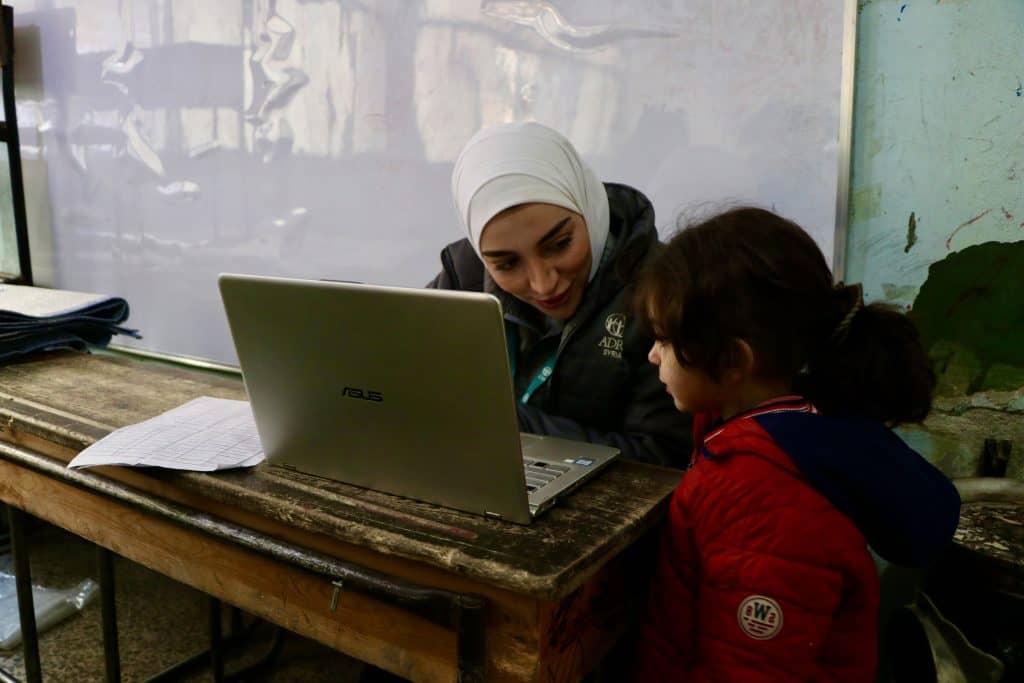
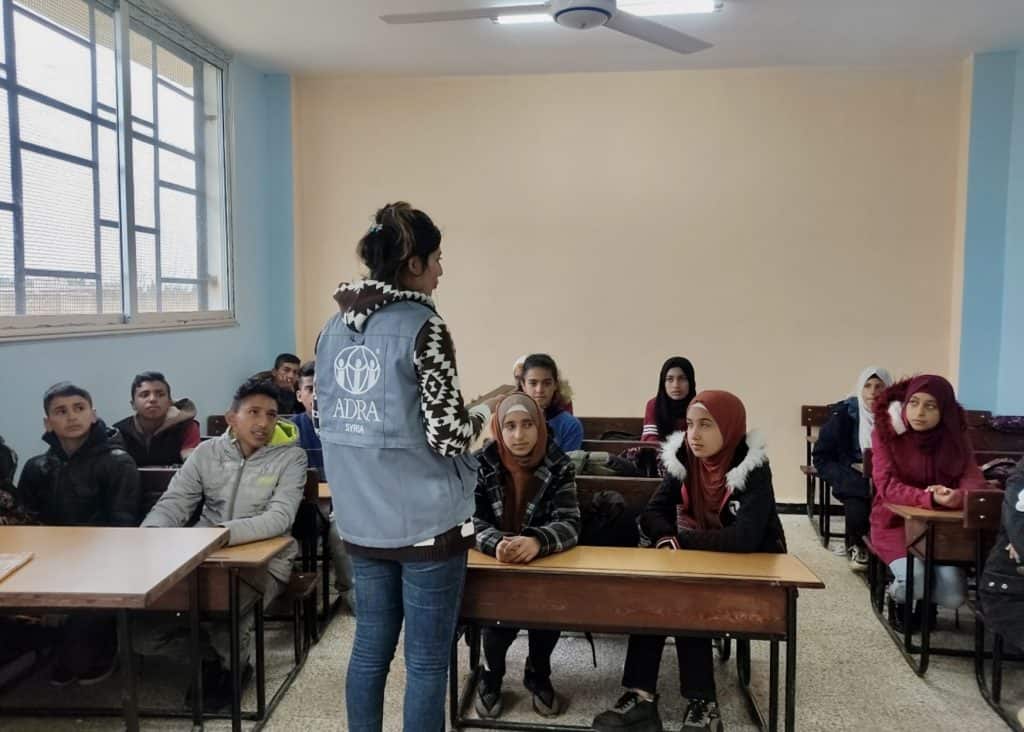
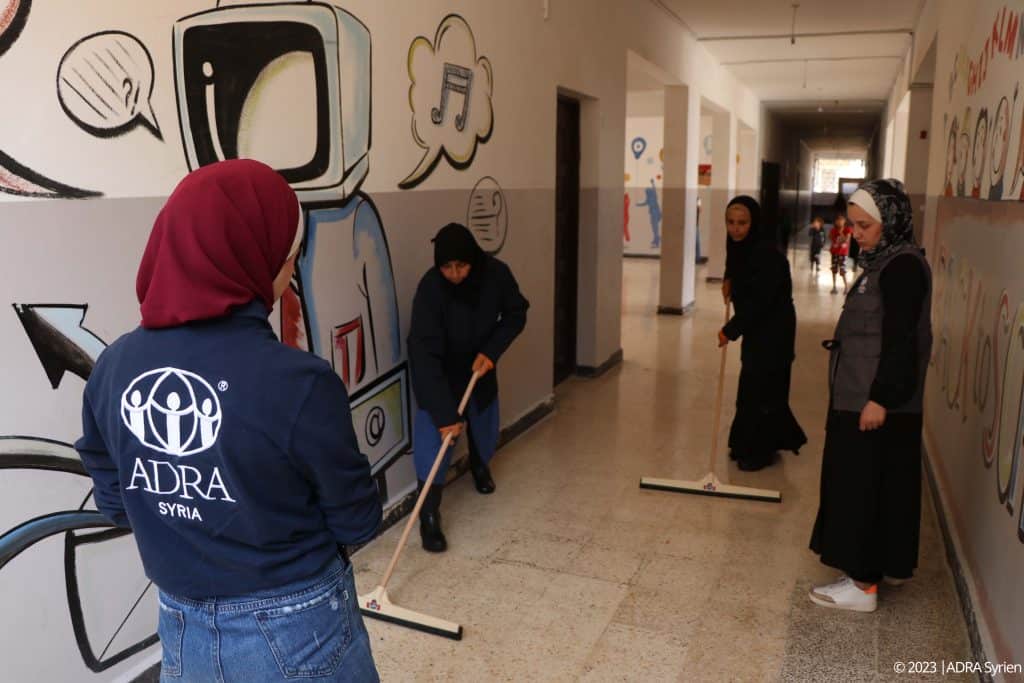
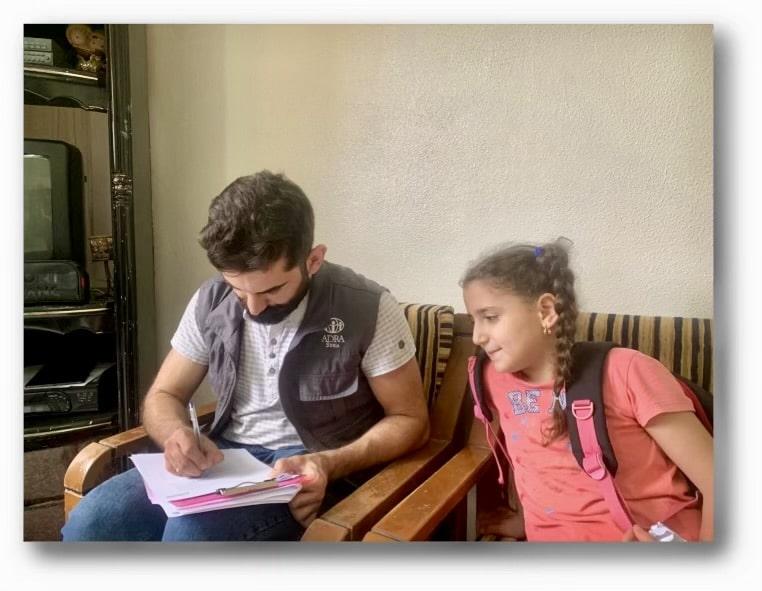
ADRA’s school projects include:
- Special classes to enable students who missed school to catch up on their studies.
- Structural repairs to damaged buildings.
- Cosmetic repairs and additions.
- Rehabilitation of sewage and water networks, or electrical work.
- Supplying school furniture such as desks, chairs, and tables.
ADRA also tackles food insecurity by giving multipurpose cash vouchers to disadvantaged households. This allows people to buy immediate necessities while also benefiting local marketplaces and businesses.
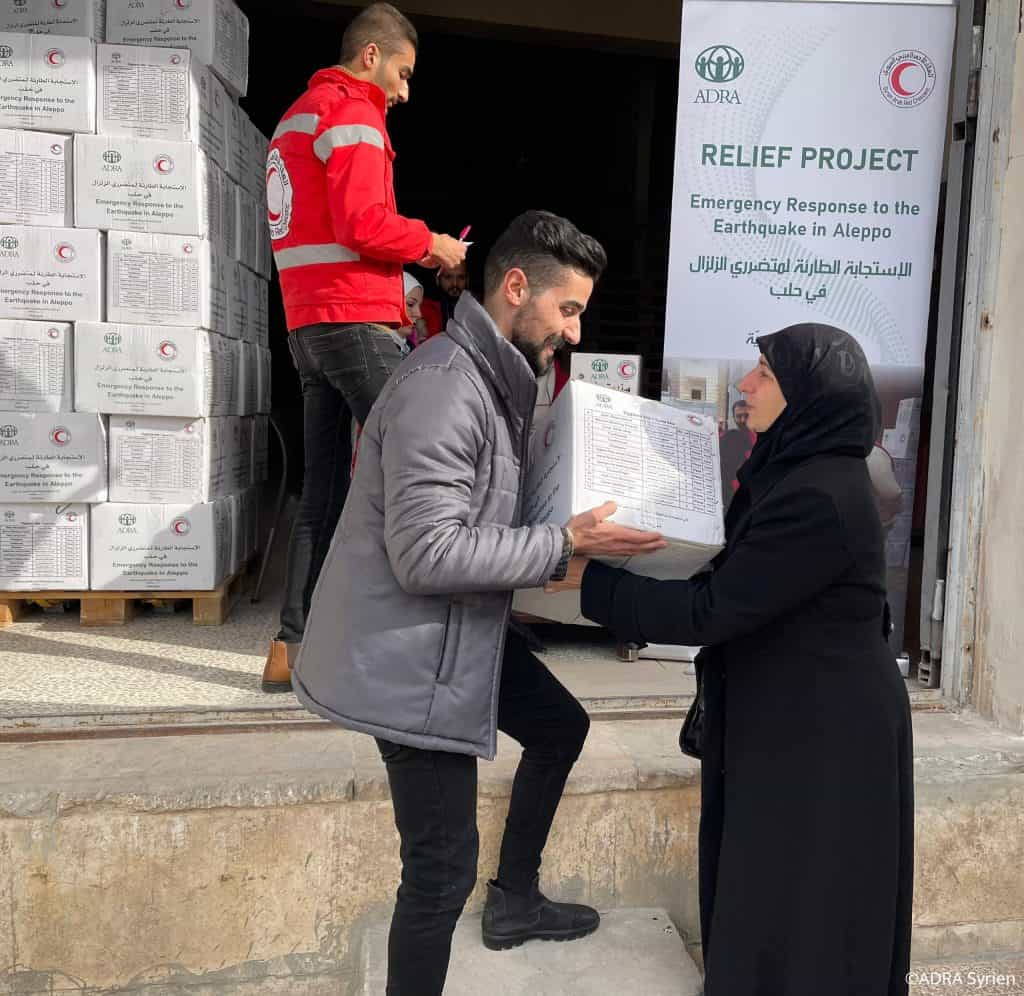
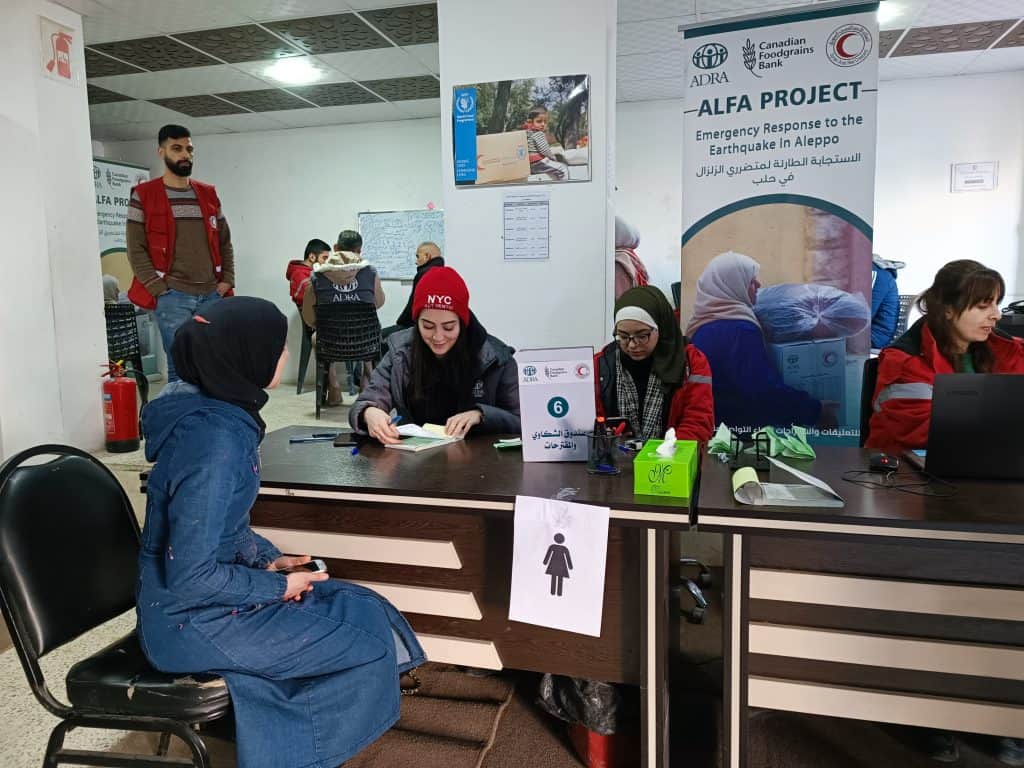
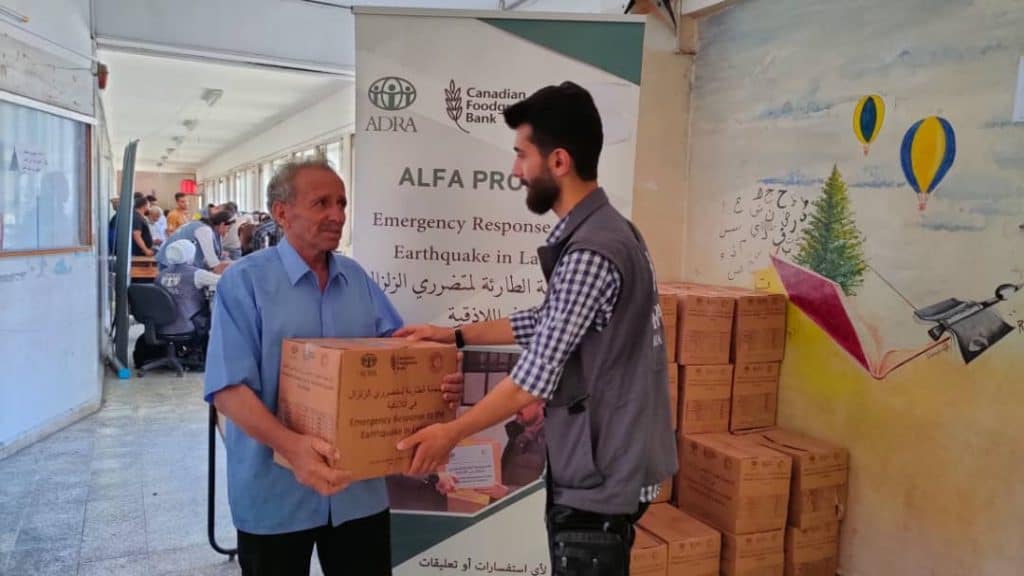
Additionally, ADRA provides economic assistance to areas devastated by the disaster where households rely on livestock and commercial sectors, and it continues to restore water pumps and sewage infrastructure to provide safe drinking water and adequate sanitation in devastated regions.
“We want to thank all our donors and partners for their quick response to the earthquake,” says Nagi Khalil, country director for ADRA Syria. “We were overwhelmed by the demand for assistance during the disaster and continue to experience a high demand to support those in need.”
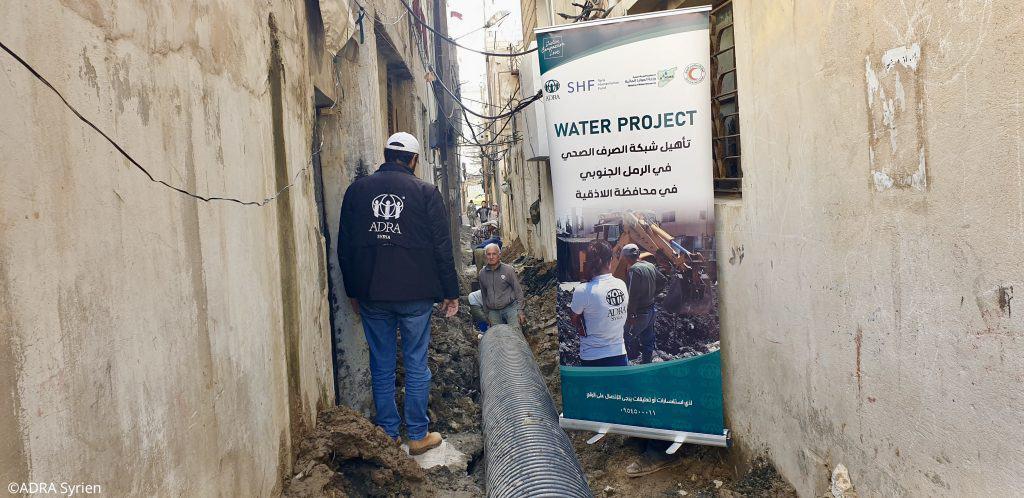
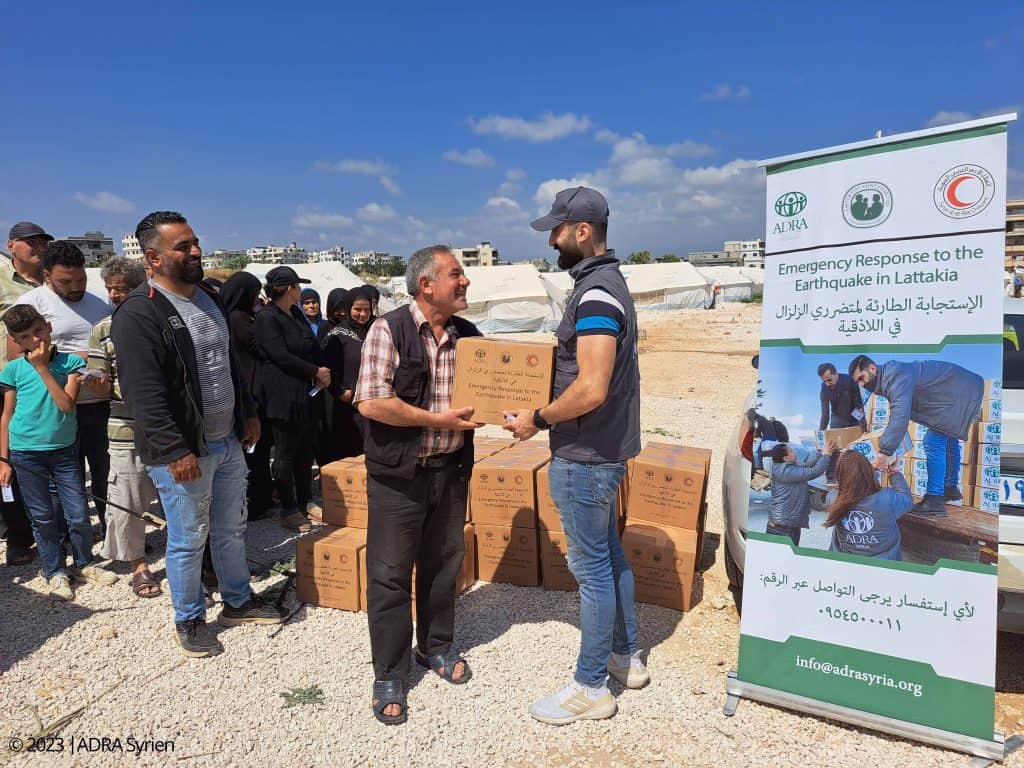
Before the 2023 earthquake disaster response, ADRA had already been serving Syrian communities and surrounding regions for over a decade, offering humanitarian relief projects such as education initiatives, shelter, and health care for refugee families.
*Name changed for child protection purposes
 1800
242 372
1800
242 372